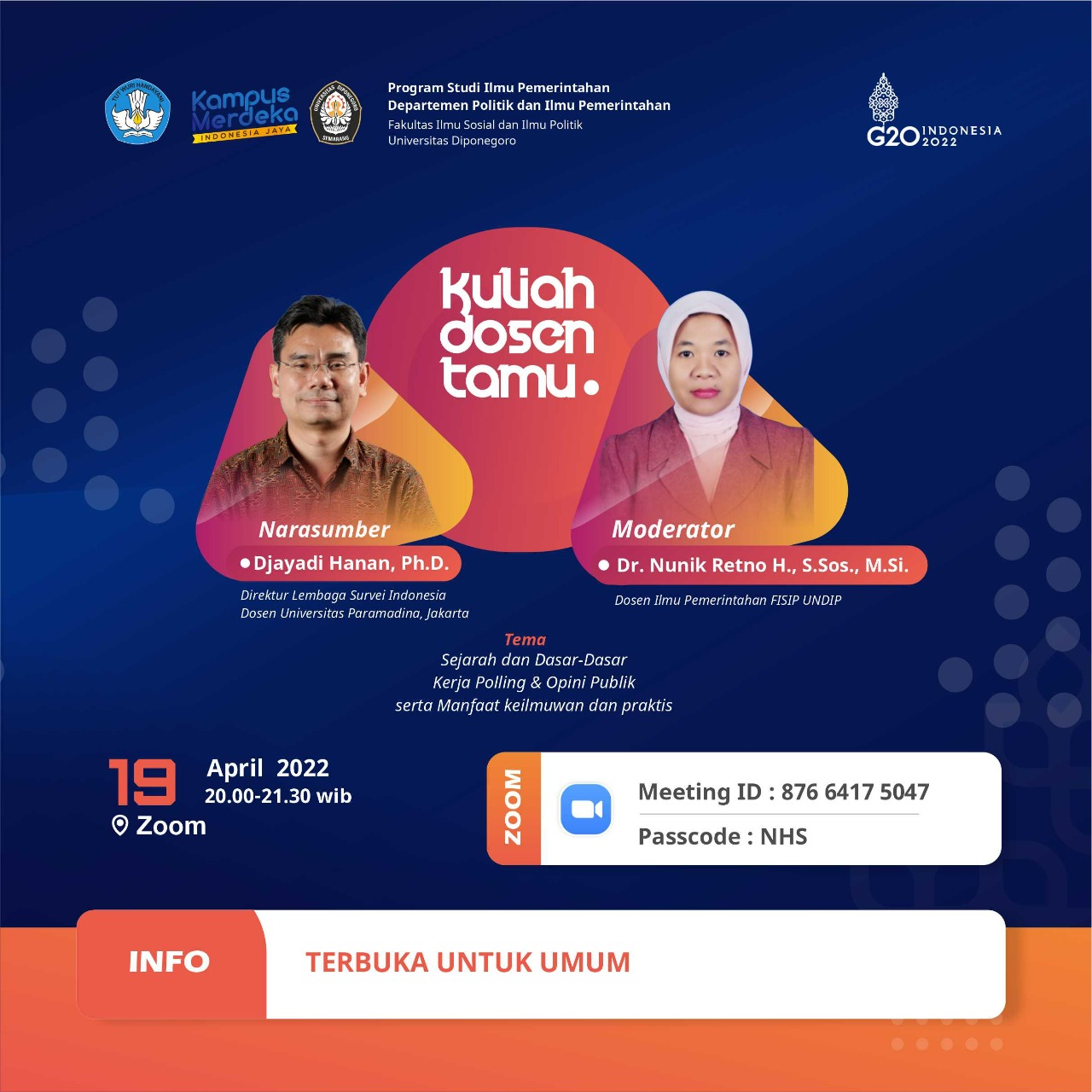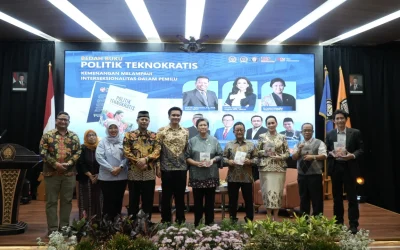Governance Studies, Department of Politics and Governance Studies, Faculty of Social and Political Sciences, Universitas Diponegoro held a Guest Lecturer Class with the theme “History and Work Basis and Public Opinion as well as Scientific and Practical Benefits” with Djayadi Hanan Ph.D (Director of the Indonesian Survey Institute / Lecturer at Paramadina University, Jakarta) and moderated by dr. Nunik Retno., S.Sos., M.Si (Lecturer in Governance Studies, Undip Fisip), Thursday (19/4).
In his presentation, Djayadi Hanan conveyed that public opinion was the reaction or attitude of the public to current and specific issues and events. “Public opinion needs to be known, it can be by asking them, questioning all members of the public or census, asking some members of the public with the assumption that they have the same opinion as the whole or most of the members of the public, or by polling or surveys. The population is a collection of all elements or objects that are observed and the sample is part of the population. It is a basis for concluding the population” he explained.
Furthermore, he said the steps for the survey process were determining the research objectives, determining the target population, selecting the survey mode and design, selecting the sampling frame, selecting the sampling method, making questionnaires, conducting pre-test questionnaires, recruiting respondents, conducting interviews, and processing data, analyzing data and composing the report. In explaining public opinion, it was necessary to pay attention to what factors influenced the public to have a certain opinion and there were three major theories or main explanations, namely sociological, psychological, and rational or rationality or political-economic approach.
With the power of public opinion in sociology, humans as social beings would certainly relate to other humans, both as individuals and in a group along with other individuals or groups. (Lin-PR)
Source: undip.ac.id




0 Comments